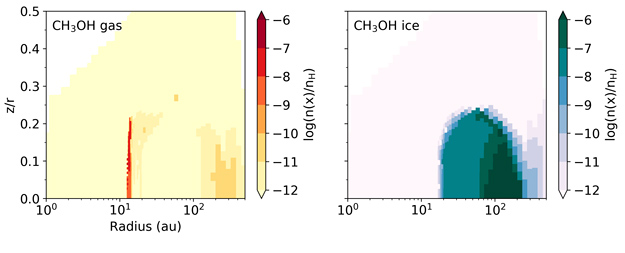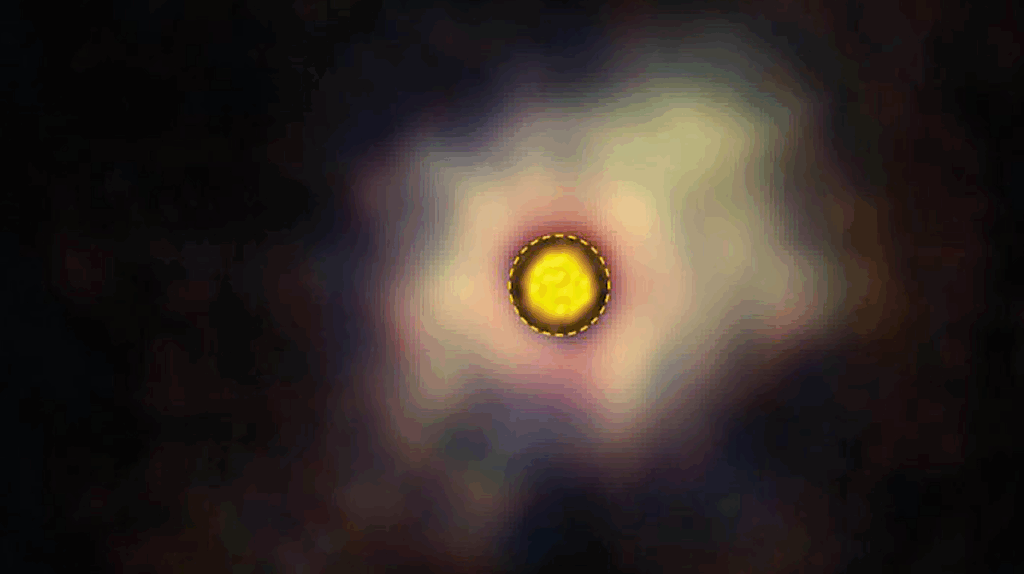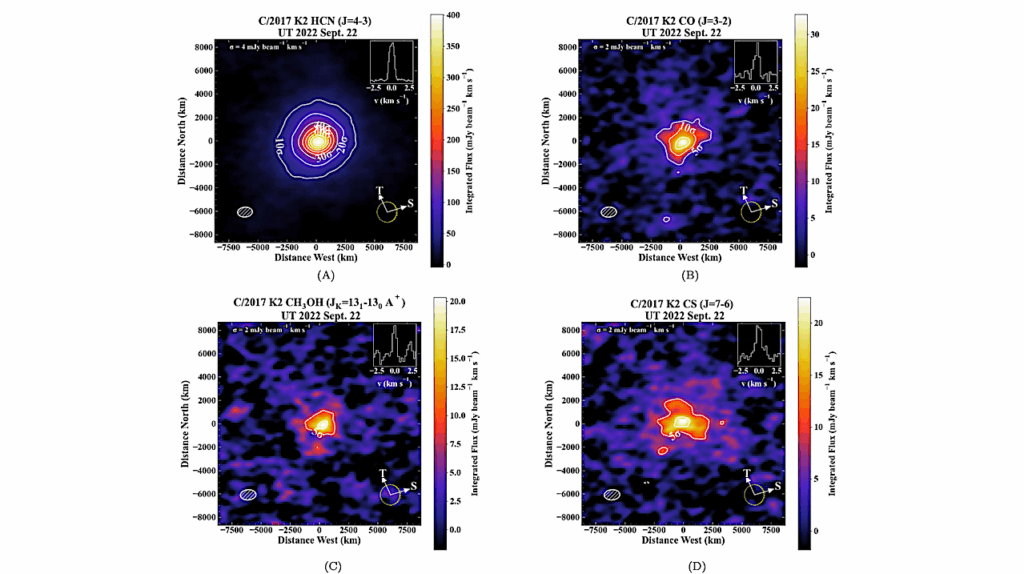An Inherited Complex Organic Molecule Reservoir In A Warm Planet-hosting Disk

Quantifying the composition of the material in protoplanetary disks is paramount to determining the potential for exoplanetary systems to produce and support habitable environments.
A key complex organic molecule (COM) to detect is methanol (CH3OH). CH3OH primarily forms at low temperatures via the hydrogenation of CO ice on the surface of icy dust grains and is a necessary basis for the formation of more complex species like amino acids and proteins.
We report the detection of CH3OH in a disk around a young, luminous A-type star HD100546. This disk is warm and therefore does not host a significant CO ice reservoir. We argue that the CH3OH cannot form in situ, and hence, this disk has likely inherited COMs rich ice from an earlier cold dark cloud phase.
This is strong evidence that at least some of the organic material survives the disk formation process and can then be incorporated into forming planets, moons and comets. Therefore, crucial pre-biotic chemical evolution already takes place in dark star-forming clouds.
Alice S. Booth, Catherine Walsh, Jeroen Terwisscha van Scheltinga, Ewine F. van Dishoeck, John D. Ilee, Michiel R. Hogerheijde, Mihkel Kama, Hideko Nomura
Comments: subm. to Nature Astronomy
Subjects: Earth and Planetary Astrophysics (astro-ph.EP); Solar and Stellar Astrophysics (astro-ph.SR)
Cite as: arXiv:2104.08348 [astro-ph.EP] (or arXiv:2104.08348v1 [astro-ph.EP] for this version)
Submission history
From: Alice S. Booth
[v1] Fri, 16 Apr 2021 19:55:36 UTC (23,229 KB)
https://arxiv.org/abs/2104.08348
Astrobiology, Astrochemistry,








